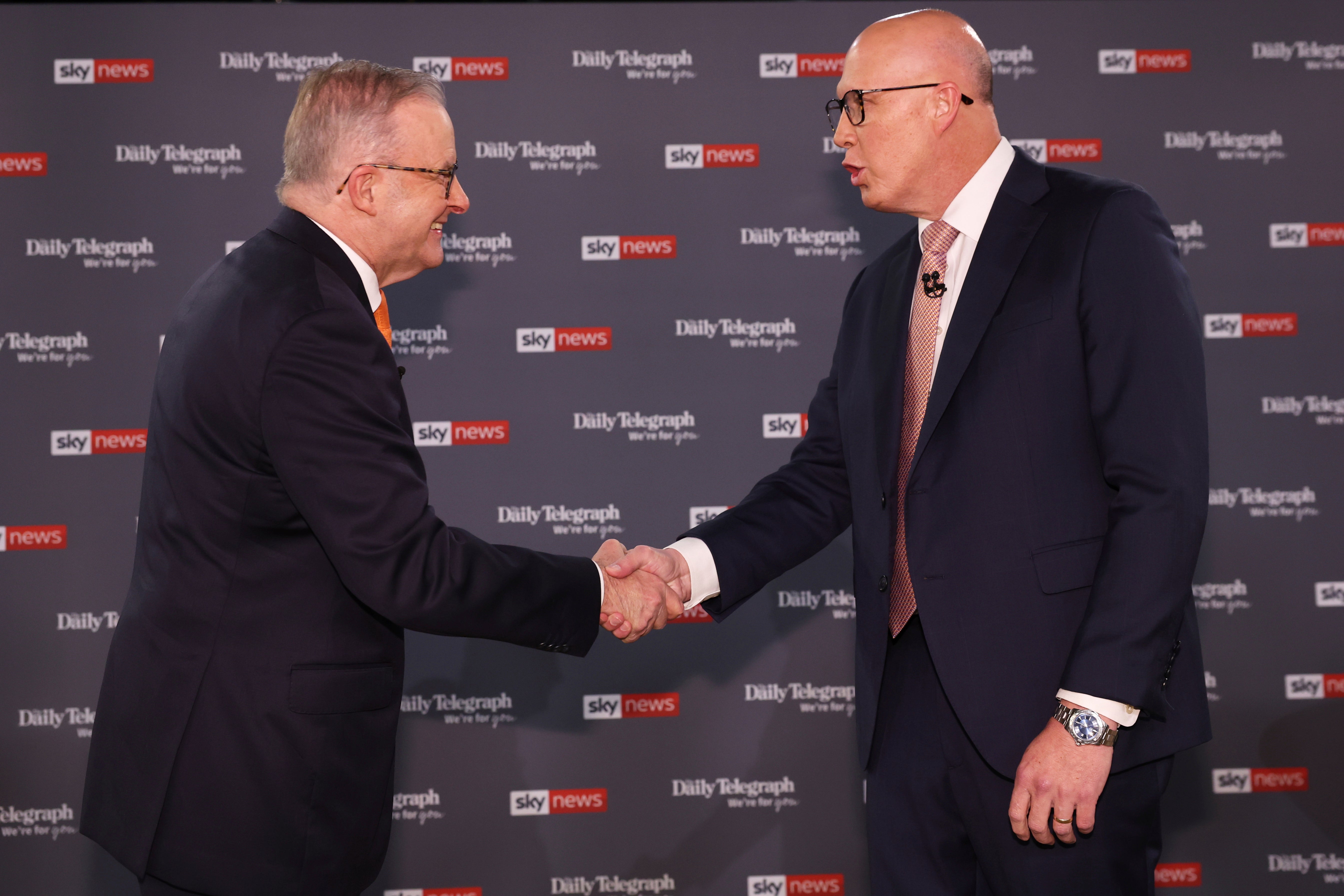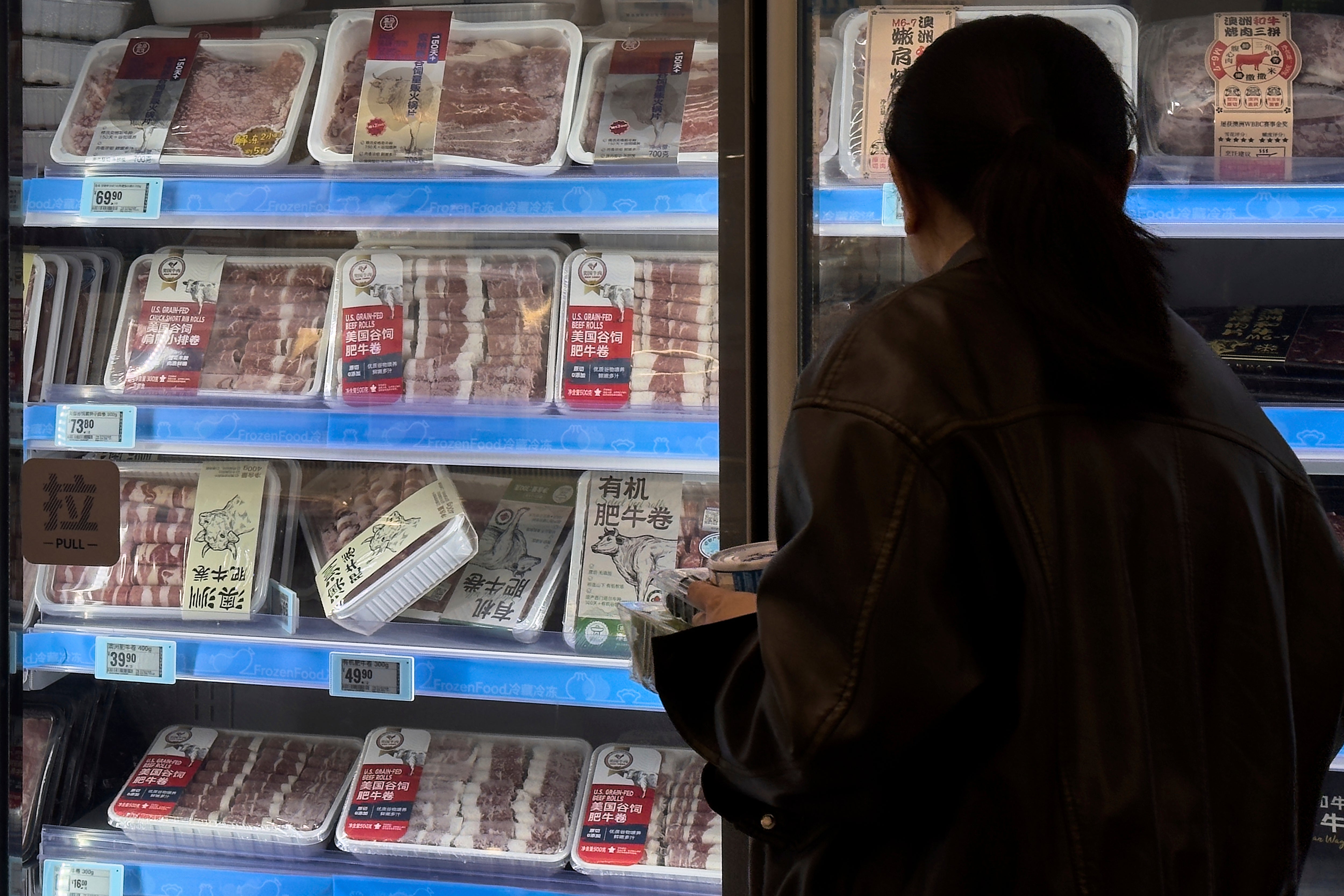Australian prime minister Anthony Albanese faced off with opposition Liberal Party leader Peter Dutton for the first debate of the 2025 election campaign.
The debate, hosted by Sky News and The Daily Telegraph on Tuesday night, was dominated by concerns over the cost of living crisis, health and medicare, immigration, energy policy, and even Donald Trump’s trade tariffs.
Labor Party leader Mr Albanese won the debate with a narrow margin following a vote by 100 undecided voters from western Sydney who also asked questions on a range of topics. He won by 44 per cent of the votes from the audience, with 35 per cent voting in favour of Mr Dutton, and another 21 per cent remaining undecided.
The debate was the first media face-off between Mr Albanese and Mr Dutton, the leader of the opposition Coalition, ahead of the general election on 3 May.
The debate was not without drama, as Mr Dutton was wrongly declared the winner by the opposition coalition’s social media accounts, while he remained resilient despite his father’s heart attack just hours earlier.

In his opening statement, Mr Albanese declared that it was not the time for Australia to go backwards, pledging instead to focus on building the nation’s future. In contrast, Mr Dutton began the debate by promising to get "Australia back on track", arguing that the economy had regressed under the Labor government.
During the debate on the cost of living issue, Mr Albanese touted Labor’s budget surpluses and support measures, while Mr Dutton blamed Labor for rising power bills and groceries, promising a Coalition fix.
He said the Coalition's short-term support package includes the cut in the fuel excise and to bring in more gas. However, it was countered by Mr Albanese as a short-term gimmick, spotlighting a policy divide. A question on the US president’s tariffs was the first of the night but was discussed briefly as Mr Albanese acknowledged the risks posed by it but framed them as a chance for Australia to adapt and diversify.

"We'll continue to negotiate, of course, with the United States looking for a better deal for Australia because reciprocal tariffs would, of course, be zero, because we don't impose tariffs on US goods."
Mr Dutton, however, took a more combative line, saying: "The prime minister of the day should have the ability and the strength of character to be able to stand up against bullies, against those that would seek to do us harm, to keep our country safe.” In another key highlight, Mr Albanese accused his rival Mr Dutton of “gaslighting” with the Coalition’s seven-reactor nuclear plan, calling it costly and unproven.
Mr Dutton has proposed constructing seven nuclear power plants across Australia, aiming to address the nation's future energy needs.
“The only gas policy the Coalition has is the gaslighting of the Australian public,” Mr Albaese said. Israel’s intensifying war in Gaza was also briefly discussed, and the two leaders expressed hope for peace in the Middle East following a question from an audience member, who said their loved ones were affected by the conflict in Gaza.
"This has been a very traumatic period for many Australians with family in Israel and Gaza and indeed, in Lebanon," Mr Albanese said.
"My government's approach is that every human life matters, and we want a ceasefire. We want to see hostages released. We want to see aid get through to Gaza."
Mr Dutton defended Israel and said if the same had happened to Australia "there would have been an expectation for our government to react".
"I want to make sure that in our country, people can celebrate their heritage and celebrate their connections to a country of origin, or to a country which is important to them," he said.
“But when you come to our country, it's about celebrating being Australian."







